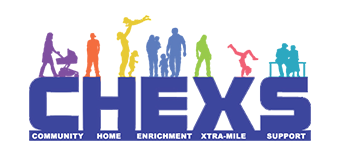Family Support Blog #3
Choices and Consequences
According to the dictionary, choice is defined as ” an act of selecting or making a decision when faced with two or more possibilities.” The definition of consequence is ” a result or effect of an action or condition.”

Every parent has those moments when the urge to yell pulses within us. We think, “Why can’t my children just listen to me?” and it seems that our attempts to be calm and kind are useless. But if children won’t listen, how we can teach them, direct them, or help them? Isn’t it our job to teach the importance of being on time, chewing with their mouths closed, or the injustice of stealing toys? Parenting can be rough, especially when we feel trapped in a cycle of yelling and frustration. What choices and consequences are happening?
Luckily, there is another way!
Parents have a responsibility to nurture and teach their children. Allow me to emphasize the word teach. Effective parenting is about more than punishment. It’s more than demanding obedience and managing through fear. Parenting is about teaching. I have found that the most effective way to help families get out of the yelling cycle is by encouraging choices and consequences. The word “consequence” doesn’t have to imply something bad. It’s just what happens as a result of their choice. Consequences can be good too
Choices and consequences is perhaps the most useful behaviour encouragement technique of all. It can reduce arguments, fights and nagging in a way that sometimes seems almost miraculous.
As parents, we need our children to follow our directions. We really do! So teach them appropriate behaviour using choices and consequences.
Children need to have both positive and negative alternatives described to them to understand they have a real choice about how to behave – co-operatively or unco-operatively. The consequence that follows will depend on the behaviour choice the child makes, so the child has the power.

Here are a couple of examples of how I have used choices and consequences with my children:
“I’ve asked you twice to put your shoes on so we can take your brother to school. If you choose to not put your shoes on, then you choose to walk to the car barefoot. Please decide because we need to get in the car. It’s your choice.”
“ I have asked you to tidy up your toys, you have a choice. You can either help me tidy up the toys or you can leave me to do it. If you choose to help, then we will have extra story time, if you choose not to help, then there won’t be time for extra stories. It’s up to you – it’s your choice.“
Finding appropriate choices to give to very young children reduces conflict and builds a sense of autonomy, just as it does with older ones. Toddlers can begin to understand the consequences of their choices but the safety of the toddler is paramount when considering age appropriate consequences.
Steps for giving choices and consequences
- Be clear and specific about the positive and negative choice of behaviour, and the positive and negative consequences
- Relate the consequences to the behaviour
- Choose consequences that mean something to the child
- Use a calm, clear voice; threats, a threatening manner, and ultimatums are counter productive
- Don’t give a choice when there isn’t one
- Choose consequences you can keep to
- Give the child a few moments to reflect before asking a decision
Some parents think (or fear that their children will think) of choices and consequences as a form of blackmail. If the consequences given are logical, this is much less likely to happen.

The other important thing for parents to remember is the follow through. If you tell them you the consequence of their choice is to lose a toy for a couple hours, then you have to follow through and keep that toy. If you say that they will have to go to bed early or miss out on dessert, then you have to follow through.
When children do make good choices, praise them! Compliment them! Remember, the whole goal is to encourage good choices, so give those good choices attention too.
Our Family Support Team are here to offer support and advice and are running workshops in your school throughout the year so please get in touch if you would like more information contact admin@chexs.co.uk
We are #here for you if you need advice, guidance or support – you can contact us via the contact information on our Team page.




